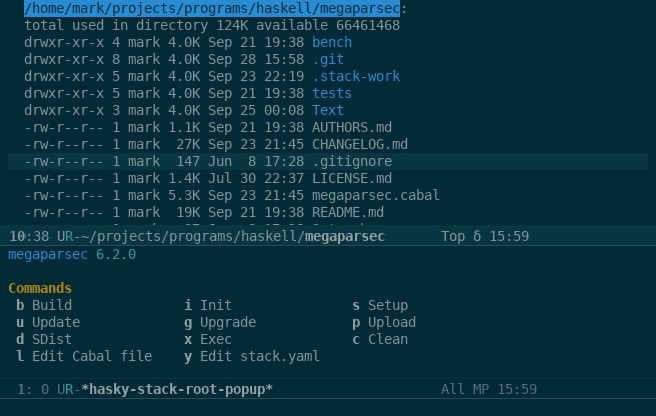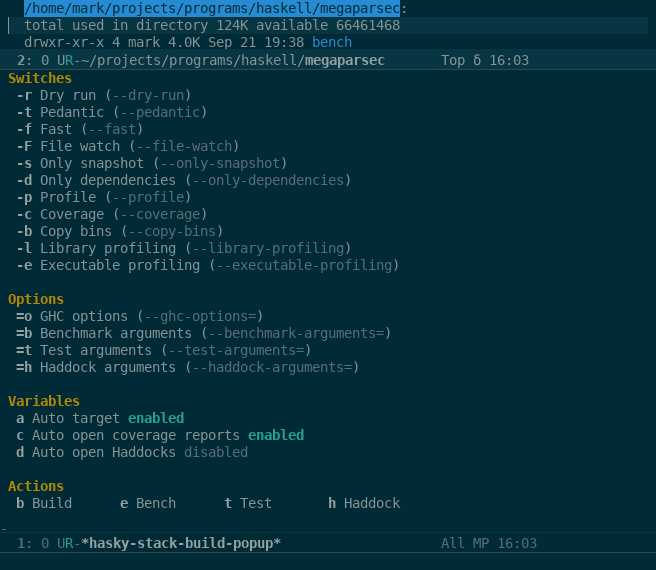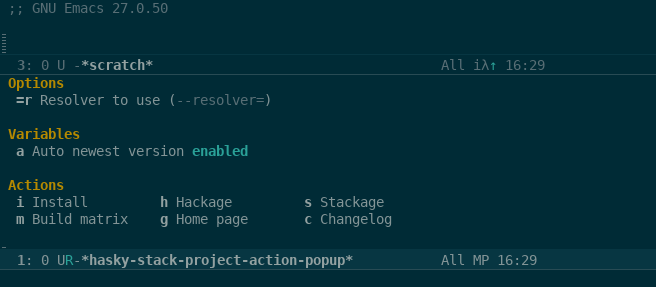This project is in “limited-maintenance” mode. I will not spend any of my time supporting it. You can still open PRs if you must, or you can take over if you wish. I'll mark the project as deprecated and stop supporting it altogether in some months.
This is an Emacs interface to the Stack Haskell development tool.
Download this package and place it somewhere, so Emacs can see it. Then put
(require 'hasky-stack) into your configuration file. Done!
It's available via MELPA, so you can just M-x package-install RET hasky-stack.
Bind the following useful commands:
(global-set-key (kbd "<next> h e") #'hasky-stack-execute)
(global-set-key (kbd "<next> h h") #'hasky-stack-package-action)
(global-set-key (kbd "<next> h i") #'hasky-stack-new)-
hasky-stack-executeopens a popup with a collection of stack commands you can run. Many commands have their own sub-popups like in Magit. -
hasky-stack-package-actionallows to perform actions on package that the user selects from the list of all available packages. -
hasky-stack-newallows to create a new project in current directory using a Stack template.
There is a number of variables that control various aspects of the package.
They can be set with setq or via the customization mechanisms. This way
one can change their default values. However, sometimes it's desirable to
quickly toggle the variables and it's possible to do directly from the popup
menus: just hit the key displayed under the “variables” section.
Switchable variables include:
hasky-stack-auto-target—whether to automatically select the default build target (build sub-popup).hasky-stack-auto-open-coverage-reports—whether to attempt to automatically open coverage report in browser (build sub-popup).hasky-stack-auto-open-haddocks—whether to attempt to automatically open Haddocks in browser (build sub-popup).hasky-stack-auto-newest-version—whether to install newest version of package without asking (package action popup).
There is a number of customization options that are available via M-x customize-group hasky-stack.
Copyright © 2017–2019 Mark Karpov
Distributed under GNU GPL, version 3.



